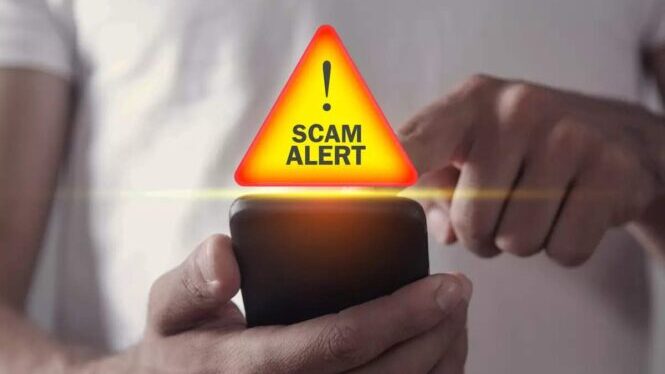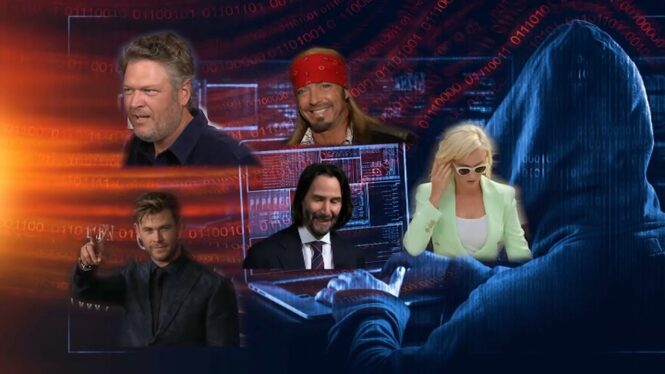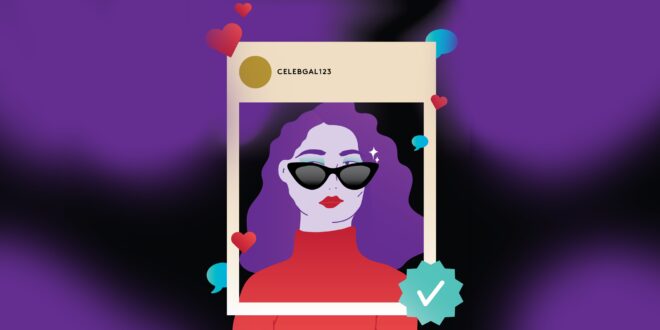Thanks to social media, the influencing power of celebrities has extended into numerous areas of ordinary life—from fashion and makeup to dieting and lifestyle. Some A-listers promote their own branded product lines, while others endorse third-party brands, leveraging their ability to shape opinions and create trends.
However, not everything you see on the internet is what it appears to be. Scammers often lurk in cyberspace, hidden behind different identities, even famous ones. Celebrity impersonation, in particular, presents lucrative opportunities for these racketeers to win trust and mislead unsuspecting fans.
So, if you often find yourself star-struck or easily swayed by celebrity opinion, it is time to pay heed. In this article, we explain the telltale signs of celebrity impostor scams so you can easily identify them and remain safe. But first, let’s understand the types of threats you stand to encounter.
Common Celebrity Impersonation Scams

Fraudsters can deploy a variety of schemes to dupe loyal celebrity followers. Here are a few examples of frequently reported scams involving well-known personalities:
- Cryptocurrency investments that promise ridiculously high returns.
- Donation requests for charities that celebrities support.
- Requests for money using wire transfers or gift cards in exchange for backstage passes or a personal meetup.
- Heavily discounted tickets to concerts for selected fans.
- Competitions, which require an entry fee or personal information to take part.
- Romance scams that eventually end with financial fraud.
These are just a handful of schemes that have deceived innocent fans. But keep in mind that you can experience a celebrity impostor in many other ways. So, staying vigilant and practicing caution is imperative before you get too comfortable conversing with a popular figure.
8 Giveaways of a Celebrity Impostor Scam

When you least expect it, one of your favorite A-listers can approach you via social media, email, or a messaging app. How can you tell whether you are dealing with a real celebrity or a fake?
Warning signs to watch include:
1. Requests for personal information
Scams designed to steal identities can solicit sensitive identifiable data under the guise of famous names. For instance, impostors can ask for your date of birth, SSN, bank account details, and a range of information that could compromise your identity and personal safety.
2. Financial favors and other monetary transactions
Most impersonation scams are financially motivated.
A fake celebrity could, for example, claim to like you and ask for some money to test whether you genuinely care for them or are just interested in their celebrity status. Sometimes, requests for money are less straightforward and may involve an investment opportunity, competition entry fee, discounted tickets, or exclusive merchandise.
3. Payments that involve non-traceable methods
Cryptocurrency, gift cards, and wire transfers are difficult to trace and leave behind little to no clues to a fraudster’s identity or whereabouts. So, be wary if a celebrity insists you use any such payment or transaction method.
4. A sense of urgency

Pressuring victims to act in haste—whether to invest in a project, make a donation, or purchase tickets—is a common trick of the trade.
5. Inconsistent information
Are there irregularities in the details the A-lister has provided you? Do they seem to forget about some of the critical stages in their career? Does certain information they share seem different from what was publicized in the media? These are all clear signs of fraud.
6. Social media accounts with a short history
To implement their impersonation scams, racketeers often set up fake profiles identical to celebrity accounts. But you can detect these by going through their account history. Remember, authentic accounts will have a substantial history with regular activities and plenty of genuine followers. If they don’t, then something is off.
7. Account names and website URLs with typos
Many imposter profiles and websites can be tricky to identify at first glance. Today’s technology makes it incredibly easy to mimic online pages. But cloning the site URL or social media handle is still impossible. These are unique identifiers that only one person can own. Of course, fraudsters can try to match them as closely as possible. However, if you look closely, you will often notice slight differences, such as an extra character or a missing letter.
8. Inconsistent language

Sometimes, criminals can hack into celebrity accounts and websites and launch various scams unknown to their real owners. In such instances, checking the URL and social media handle or reviewing the account history will not raise any alarms.
But if you have been following the A-lister for a while, you can observe irregularities in the language used after an account takeover. For instance, you might suddenly notice terms and phrases that seem atypical of the relevant celebrity.
Verify Your Way to Safety
There is a lot of work that goes into a celebrity impersonation scam. Criminals don’t just research the VIP they want to imitate. They will monitor the celeb accounts and take note of fans who actively interact with the stars—leaving behind comments and resharing posts on a regular basis—before determining who to target. Therefore, when an imposter approaches you, they are well-prepared.
Not only that, deep fake and other advanced technology has made it possible to mimic and clone images, videos, and even audio of A-listers without much hassle. This makes it even more challenging to suspect and identify a celebrity impersonation.
So, before you interact with anyone famous, verifying whom you are conversing with is crucial for your safety.
- Instead of using links shared via emails and messages, type in the celebrity’s regular website URL to access information. This will help you avoid spoofed sites.
- Check whether a web page address shared by a celebrity matches the site linked to it by hovering the cursor on top of it.
- Scan attachments using a reliable virus guard before downloading them to your devices.
- When a celebrity DMs you, search for their name on the social media platform first. If you find more than one account, there is a high chance of imposters roaming about.
- Use a reverse email lookup service to authenticate emails.
- If a celebrity is reaching out to you on a messaging app or even calling you, run the phone number on PhoneHistory to check who owns it.
A Final Word
It is easy to feel flattered and overwhelmed when you receive an email, message, or call from a big-name star. But you can never tell who you are dealing with on the internet until you dig a little deeper. So, being skeptical and watching out for telltale signs of scams is important for ensuring your safety.
 Imagup General Magazine 2024
Imagup General Magazine 2024



